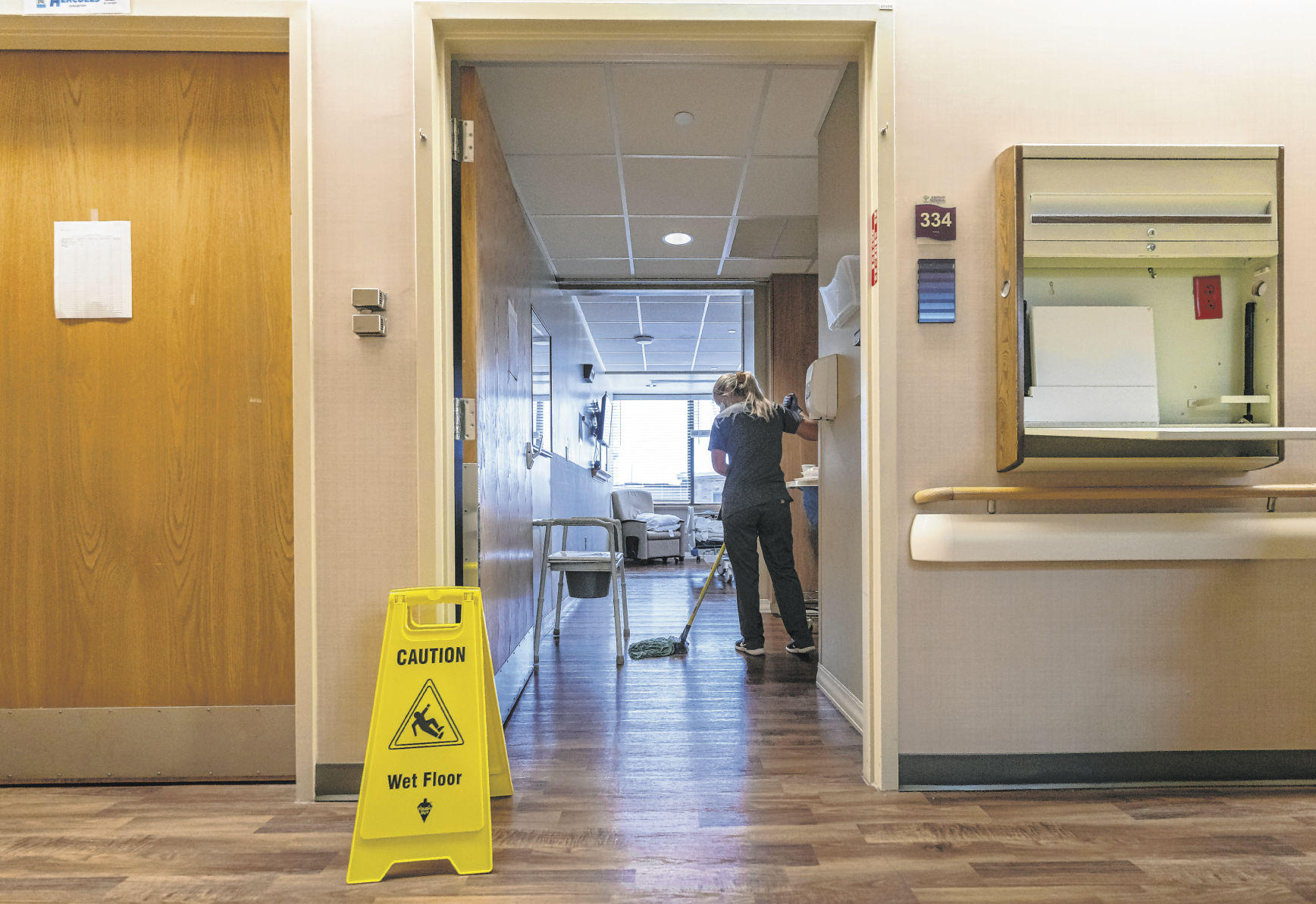Staffing shortages at area hospitals are causing diversions and forcing recruiters to get creative.
Johnson Memorial Hospital has been on diversion off and on, meaning incoming patients are directed to other area hospitals when there is not enough coverage to provide quality care, said Dr. David Dunkle, Johnson Memorial Health’s president and CEO. Last month, there were four full-time nursing positions open in the hospital’s emergency room.
The hospital is overflowing due to staffing shortages and an influx of patients who put off care during the pandemic, Dunkle said.
The Franklin hospital is not alone. Other hospitals in the area and around the country are seeing the same trends, local hospital recruiters say.
Nursing positions are the hardest to fill, but other positions such as patient care representatives, respiratory therapists, lab technicians and phlebotomists follow closely behind, recruiters say.
At hospitals like Johnson Memorial that can’t afford to raise the minimum wage of their lowest-paid positions, even recruiting for custodial and food service positions is difficult, said Judy Ware, human resources director.
At Community Health and Franciscan Health, applications have spiked for their low-wage positions since raising the minimum wage to $15, but nursing positions are still hard to fill, recruiters for both hospitals said.
Hospitals have struggled to hire enough staff, especially nurses, for years.
“Even before the pandemic, we saw more demand than supply. You throw the pandemic in there and you have this perfect storm,” said Corey Baute, vice president of administrative services for Franciscan Health Central Indiana.
During the pandemic, most nurses stayed put or switched to another specialty within health care to do their part, recruiters said.
After the winter surge waned, some became burnt out and left the profession or decided to switch to an area of patient care that would be less intense than acute care. Though health care workers did not leave in large numbers, some did, they said.
Even the most devoted health care professionals were taxed and saw more severe illness than they had ever experienced in their careers. The pandemic, social justice movements, stress levels and a desire to spend more time at home, all caused health care professionals to look at their priorities and make changes, said Karly Cope, Community’s vice president of talent management.
Exit interview data from Community Health supports that and shows there has been a shift in recent months toward more folks leaving for personal reasons, rather than traditional reasons such as leadership, pay or hours, Cope said.
More than nurses leaving, the health care hiring market is especially tough right now. There are openings all over and not enough candidates coming out of nursing school to fill them, recruiters say.
Retirements are another issue. The number of nurses reaching retirement age is greater than the number of young people graduating with nursing degrees. During the pandemic, some nurses delayed retirement, but now they’re leaving, Baute said.
Area hospitals say they are working on their own unique solutions to attract and retain more nurses. Each is doing more outreach and trying to set themselves apart from the competition.
Community recently began partnering up with historically black colleges in an effort to diversify its talent pipeline, Cope said.
Franciscan is recruiting nurses from outside the United States who are trained in western medicine and speak English as their first language, Baute said.
And of course, all three hospitals have relationships with area colleges and high schools that helps form a pipeline to their workforces.
With less room to compete with larger health systems, Johnson Memorial focuses on culture and employee benefits to draw in applicants, Ware said.
“We are small enough to where everyone knows each other. We have a family feel … But we are big enough to have that quality care that you can get at a big hospital,” she said.





